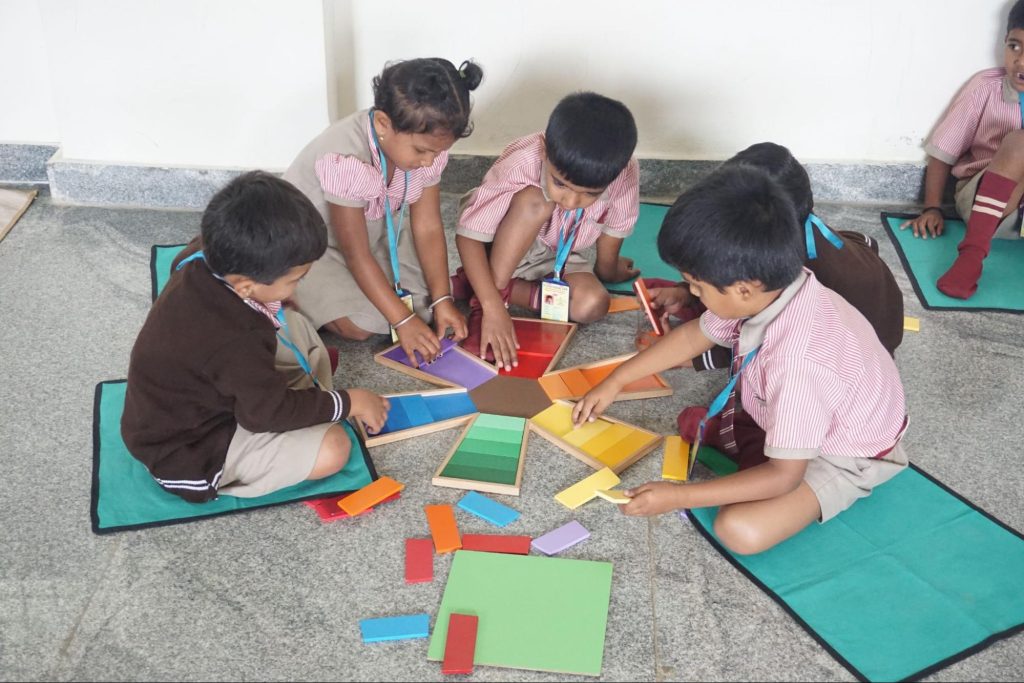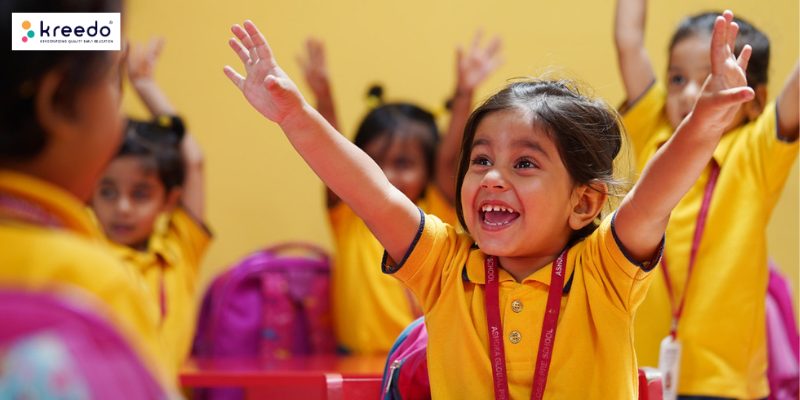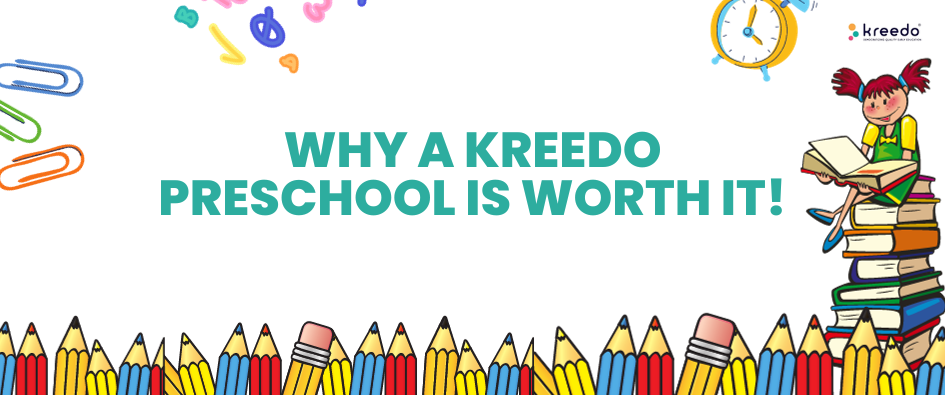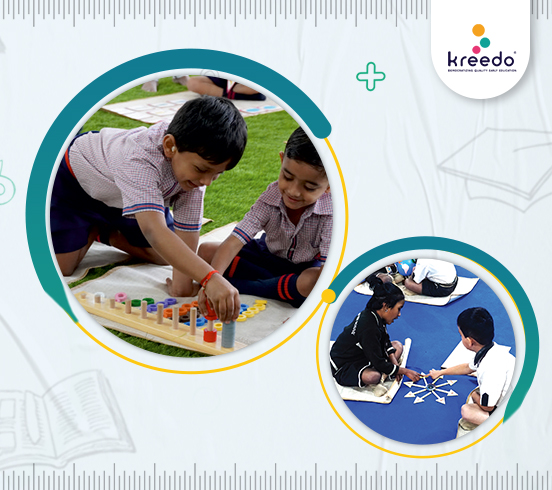Peer work, also known as collaborative learning or group work, is a learning approach in which students work together in small groups to achieve a common learning goal. It allows children to communicate, explore, and learn from one another while guided by a teacher or facilitator. Students may collaborate on a project, an issue, or a task that needs teamwork, communication, and critical thinking. The goal of teamwork or peer work is to foster active learning, boost social contact, and improve the learning experience for all students attending.

In the aspect of early education, teamwork becomes essential for children as it helps them develop a range of skills and qualities like social skills, emotional and cognitive development, improve learning outcomes and enhance creativity. Teamwork can additionally improve children’s learning by introducing them to new ideas and views. As children learn from one another, working as part of a group can help them get a better understanding of ideas and concepts.
Even in terms of teamwork for children of mixed groups, peer learning may be an extremely successful strategy since it allows people to learn from and teach one another regardless of age differences. It can leverage the diversity of perspectives, experiences, and knowledge to promote creative thinking, problem-solving, and critical thinking. Peer learning provides individuals with the opportunity to learn from peers and reinforce their own learning by teaching others, leading to improved academic performance. In a mixed-age environment, younger children are encouraged to work out complex tasks for themselves, while older children learn responsibility, leadership and collaboration. Working with younger children reinforces their concepts and strengthens their understanding.
Peer learning is an essential component of Kreedo, where children engage in parallel play, cooperation, involved play, and conversations, all of which result in extremely high learning results. When children play and collaborate, whether at school or elsewhere, they make significant progress in their learning. Learning is a collaborative endeavour. Children are brought together to either exchange information, solve a problem statement, complete a task, or complete an assignment. While children work in groups and communicate and collaborate to achieve a common objective, they learn a variety of socio-emotional abilities and strengths.
Kreedo’s teamwork methodology helps students understand the essence of accountability and collaboration within a pleasant and engaging learning environment that fosters lifelong learning by offering chances for students to learn from and alongside their peers.



Copyright 2025 © Kreedo